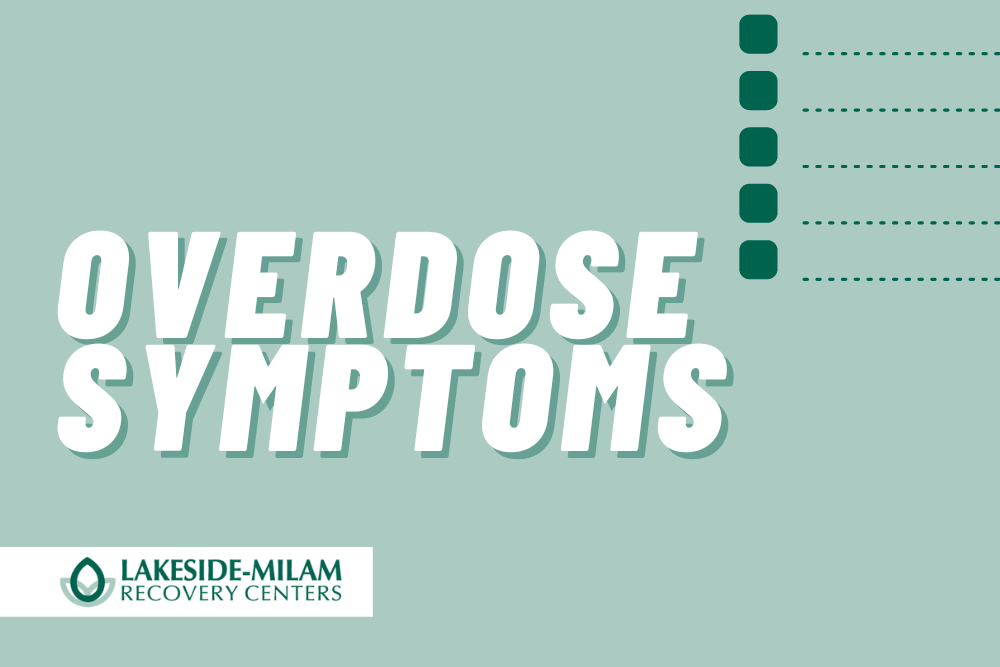None of us ever want to consider the possibility of a drug overdose. However, if you know someone currently suffering from addiction, it’s important to educate yourself about common drug overdose symptoms. That way, you’ll know how to react if it happens to your loved one.
An Overview of Drug Overdose
Put simply, a drug overdose is a series of serious symptoms that occurs when a person takes too much of a substance. Illicit drug overdose includes illegal drugs as well as opiates and fentanyl.
Drug overdoses have a harmful effect on bodily functions, leading to serious medical issues and even death. In fact, according to the CDC, the number of drug overdose deaths in the US reached over 100,000 in 2022.
Many of these deaths occur because the victims were not aware they were experiencing an overdose. This is why it’s important to know common signs that indicate that someone has taken too much of a drug.
Common Drug Overdose Symptoms
Many illicit drugs and opiates are potent and can change the ways people feel and behave. So, you may see someone acting strangely and wonder, “Is this a normal effect, or is this an overdose?”
There are several symptoms to look out for after taking too much of a drug. For example, you may notice some observable changes such as a pale face, clamminess, or blue lips or fingernails. The person will also experience physical discomfort, such as nausea and vomiting, chest pain, diarrhea, dizziness, loss of balance and coordination, confusion, and drowsiness.
There are also some more severe side effects to be aware of, such as unexpected seizures, agitation, paranoia, and hallucinations. These symptoms are definite indicators that someone has taken a dangerous dosage of drugs.
What to Do If You Observe Drug Overdose Symptoms
As you can see, overdosing causes serious health complications. So what can you do if you notice signs of an overdose?
If You Personally Experience an Overdose
It’s important to know what to do if you’re overdosing so you can get the help you need. If you think you’re experiencing an overdose, call 911 immediately and let them know.
Be honest about what you took and which symptoms you have. Remain in the same area while you wait for help to arrive, and keep your drug containers for first responders to take to the hospital.
When Someone Else ODs
Those with addicted loved ones should consider keeping Narcan on hand. The generic name for this life-saving drug is naloxone. When administered, it can reverse an opioid-induced overdose. Naloxone is covered by Medicaid in the state of Washington, and it can be obtained at pharmacies without a prescription. Visit the Washington State Department of Health website for more information about Narcan.
If you notice someone else experiencing a drug overdose and do not have any naloxone in the house, stay calm and call 911.
If they are still responsive, you may ask them what they’re feeling, what they’ve taken, and how long they’ve been experiencing symptoms. Do not give them anything to eat or drink or try to make them vomit. Keep any containers so medical personnel can identify the substance and provide appropriate treatment.
If the person is unconscious but breathing, gently place them on their side. Tilt their head back and lift their chin so that their airway remains open. Check their breathing and continue to monitor their condition until help arrives.
If you think someone may have overdosed but aren’t sure, call Poison Control to get advice about what you should do.
It is always best to act quickly in the event of a suspected overdose. The sooner you can get help, the better the outcome will be.
What Happens Next?
Once someone ODs, they should seek inpatient treatment. This will involve a mental health evaluation and may also include options such as cognitive-behavioral therapy and medication.
Drug overdoses are life-threatening situations that occur when you take too much of a drug. Don’t lose hope if you’re suffering from an addiction. You can recover and avoid drug overdose with the right treatment. Contact Lakeside-Milam today to get the help you need on your road to recovery.






